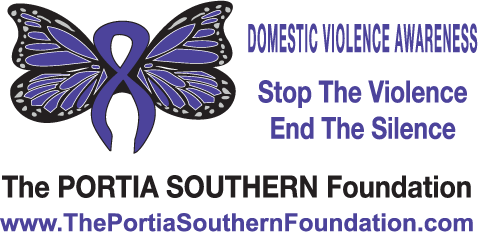
STOP THE VIOLENCE AND
END THE SILENCE

What is Domestic Violence?
Domestic violence is a pattern of coercive and assaultive behaviors that one former or current intimate partner uses against the other.
Who Batters and Why?
People who batter have a need to gain and maintain all of the power and control in the relationship. People who batter come from all walks of life but have common characteristics:
-
Insecure
-
Emotionally dependent
-
Excessively jealous
-
Manipulative
-
Can be very charming and then suddenly angry and violent.
Abusive partners are frequently described as being like “Dr. Jekyll and Mr. Hyde." Abusive behaviors are chosen to maintain power and control. Abusers will tell you that you caused the abuse or that you are “crazy." This is not true. Nobody likes being abused or is responsible for someone else’s behavior. It is normal to feel crazy because abuse is a crazy situation.
My family and I would like to send our sincere and heartfelt thanks to you for all of the love, prayers, and support. There are not enough words to express our gratitude for the unselfish kindness and generosity you have shown.
The next few days, weeks, and even years will be a challenge for us, but WE still BELIEVE.
BELIEVE that God is......
BELIEVE in fresh starts and new beginnings
BELIEVE we are here for a reason
BELIEVE nothing is too good to be true
BELIEVE when others might not
BELIEVE there is always a way
BELIEVE we are bigger than anything that can happen to us
BELIEVE there's light at the end of the tunnel
BELIEVE we might be that light for someone else
BELIEVE we are blessed
BELIEVE in love and everything it touches
BELIEVE in doing the right things because it's right
BELIEVE that friendship is an honor and privilege
Thank you for that honor and privilege.
Wishing you and your family a safe and Happy Holiday Season,
May God bless and keep you..............
Veda, SaNya, Sekai Jr
Dear Veda,
As we head into the season of gratitude and giving, the National Network to End Domestic Violence would like to send a note of thanks to you, Veda, for supporting our work.
NNEDV’s strength is in our partnership with domestic violence coalitions, local programs, and individuals like you. Thanks to you, NNEDV is able to hear and respond to the needs of advocates and survivors and be a champion for change on a national scale.
Thank you for working to support survivors and for joining us in this movement to end violence.
With gratitude,
Deborah J. Vagins
NNEDV President and CEO
November 23, 2022
Dear Veda,
Thank you for sending a letter on behalf of the National Network to End Domestic Violence (NNEDV) to your Members of
Congress and asking them to maintain their commitment to helping the most vulnerable victims escape and heal from abuse and rebuild their lives. Your support matters. Through this action alert, we hope to advance policy solutions that increase access to resources, safety, and justice for all survivors.
To make an even bigger impact, spread the word! Tell your community why you support NNEDV by sending an email with a link to our Action Alerts so they can send a letter themselves, or by sharing the Action Alert on social media.
Together, we can make a difference.
Thanks again for your support!
For peace and safety,
Deborah J. Vagins
President and CEO



